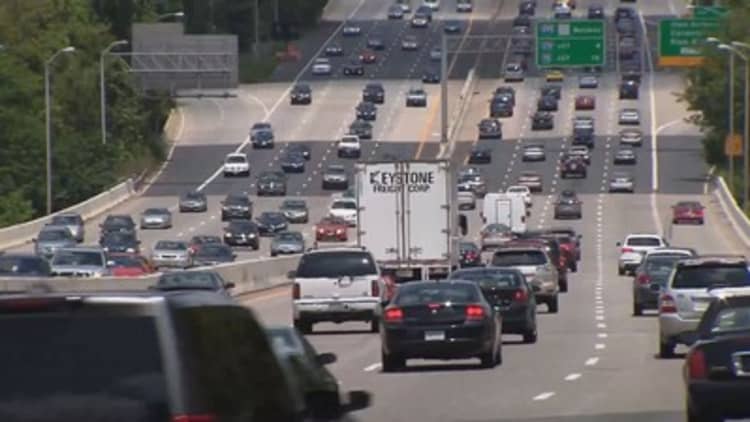
Urban Engines started as a research project eight years ago in Bangalore, India, incentivizing employees of Infosys to commute during off-peak hours to reduce congestion.
Now, the start-up has the backing of Google and is working with cities including Casablanca, Morocco, and Manchester, England, to make urban transportation globally more efficient.
Customers ranging from San Francisco's Bay Area Transit System (BART) to Toyota are using the software to gather data from all the sensors attached to cars, buses, trains and fare cards for a real-time view of travel speeds and conditions.
"It's essentially a space-time map of where thing were and where things are," said Alphabet Chairman and former Google CEO Eric Schmidt, who invested in Urban Engines independently of Google Ventures. "It's applicable across a number of industries," Schmidt said in an interview. He cited ridesharing and smart buses as the obvious areas.
Urban Engines, based in Los Altos, California, has its sights set on fixing packed urban streets and subways. Helping consumers best navigate public transportation networks and assisting transit systems to understand commuter behavior and manage traffic was the initial application.
Up to this point, Urban Engines has cited deployments in Singapore, Washington, D.C., and Sao Paulo, where transit agencies can use the technology to alter supply as needed. The company is adding to its roster of public sector customers as well as lining up commercial deals.
Toyota's InfoTechnology Center is using Urban Engines' software in the Bay Area to gauge how automobiles respond in certain conditions and how weather and traffic patterns affect behavior, all useful information as the carmaker prepares for the era of autonomous driving.
Other clients include Japan's SoftBank and NEC, and Delhivery, known as the FedEx of India.
Mobile phones, radio signals and beacons are all producing movement data that combined can show what's happening now and, based on historical data, what will happen in an hour.
Instead of taking on Google in the consumer mapping market, Urban Engines is selling its service in the cloud to help businesses and municipalities make better decisions.
"They're using this for understanding what's happening in each minute or mile through their network," said Shiva Shivakumar, CEO of Urban Engines and a former vice president at Google.

For a company such as Delhivery, Urban Engines can send drivers along the fastest routes and change those routes on the fly as conditions change.
Imagine a dozen drivers in Delhi making their afternoon deliveries simultaneously. A dispatcher can view all the trucks and see existing traffic issues so a driver can be alerted to go a different way when needed.
It can also make predictions. For example, if a major fog is rolling in that will most certainly delay flights, the software can emulate what that will mean for traffic patterns. San Francisco city officials will get to see how Super Bowl festivities downtown will affect traffic, and East Coast cities buried in snow can see what happens if another six inches pile up.
Read MoreNothing comes cheap at the Super Bowl
"Where the emulator gains its power is the extreme accuracy down to the exact trajectories and speeds on the roads," said Balaji Prabhakar, chief scientist at Urban Engines and a professor of electrical engineering and computer science at Stanford University. "We can predict based on exact past data."
Uber, of course, has built its own engine to determine when prices should increase (surge pricing) based on traffic and rider demand. Urban Engines' quest is to enable companies (and cities) that aren't filled with Silicon Valley developers to make equally intelligent decisions and use their resources wisely.



